






By Chris Juhn Contributing Writer
The early morning attacks occurred just hours before a major protest was scheduled to take place in St. Paul, part of a national “No Kings” day of action opposing President Donald Trump. Authorities say the suspect, now identified as Vance Boelter, left behind flyers in his vehicle linking him to the antiauthoritarian protest movement. The Minnesota State Pa-

‘Banking

trol confirmed Boelter’s arrest on June 15.
Officials warned Minnesotans not to attend the protest amid the uncertainty. Still, the demonstration moved forward, though under heavy emotional strain. Clouds mirrored the heavy emotions as demonstrators began gathering outside a local college.
Many stared solemnly at
By Jasmine McBride Associate Editor
local man says he was accused of fraud while trying to cash a $182 paycheck at a Commerce Bank branch in Edina last fall, prompting him to seek legal counsel and raising broader concerns about how Black customers are treated at financial institutions.
Juan Coleman said he received the check on the morning of Nov. 13 from Fieldwork Inc., the market research firm where he worked as a contractor. The company’s office is located on the seventh floor of a building that also houses a Commerce Bank branch. Around 10 a.m., Coleman walked downstairs to cash the check at the bank, which he said holds Fieldwork’s business account.
Instead of a routine transaction, Coleman said he was immediately met with suspicion. “She looked at the check and said, ‘This is fraudulent. I
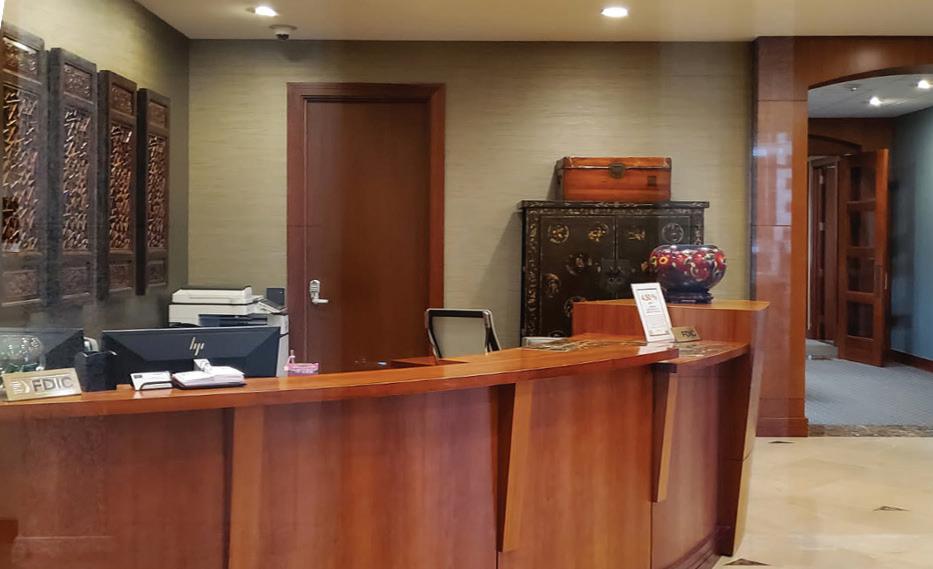
see these types of checks going around,’” Coleman recalled, referring to Commerce Bank operations assistant Michelle Johnson. “I was shocked, confused — just completely caught off guard.”
Coleman asked Johnson to verify the check by calling the Fieldwork office. When no one answered, he returned upstairs and brought back Emily Fulcher, the Fieldwork employee who
had handed Coleman the check. Despite that, Johnson refused to cash it, saying additional verification was required.
Coleman and Fullcher then asked Fieldwork’s president, Natalie Renna, to intervene.
This time, she and Coleman returned to the bank, where Renna spoke privately with Johnson. After their conversation, Johnson cashed the check.
■ See EDINA on page 7
their phones, which displayed images of the “No Kings” flyers found in the suspect’s car and shared by the State Patrol. A message broadcast over loudspeakers urged the crowd to support one another through the tragedy.
“Today, we’re rejecting their cruelty and bringing love and compassion to every human,” said Pam O’Connell, one of the

speakers.
The day’s original plans, including remarks from Gov. Tim Walz, were scrapped due to safety concerns. “The reaction to today’s news was somber, frightened, but resolute,” said organizer Heather Friedli-Ratzlaff. “We could not stand down in the face of those who are trying to intimidate us.”
By Aria Binns-Zager
Organizers held a moment of silence for the victims before proceeding with a shortened program. “What was planned as a joyous rebellion became a somber event,” Friedli-Ratzlaff said. “We’re thankful that everyone remained safe after the violence earlier today.”
As the march began along John Ireland Boulevard, thousands filled the wide avenue, ■ See NO KINGS on page 7
Black men in America are in a state of emergency We have grown numb to the alarm
We hope that these reflections spark policy changes for a more equitable Minnesota. This week’s guest contributor is Markus Flynn, founder of Black Men Teach.
By Markus Flynn
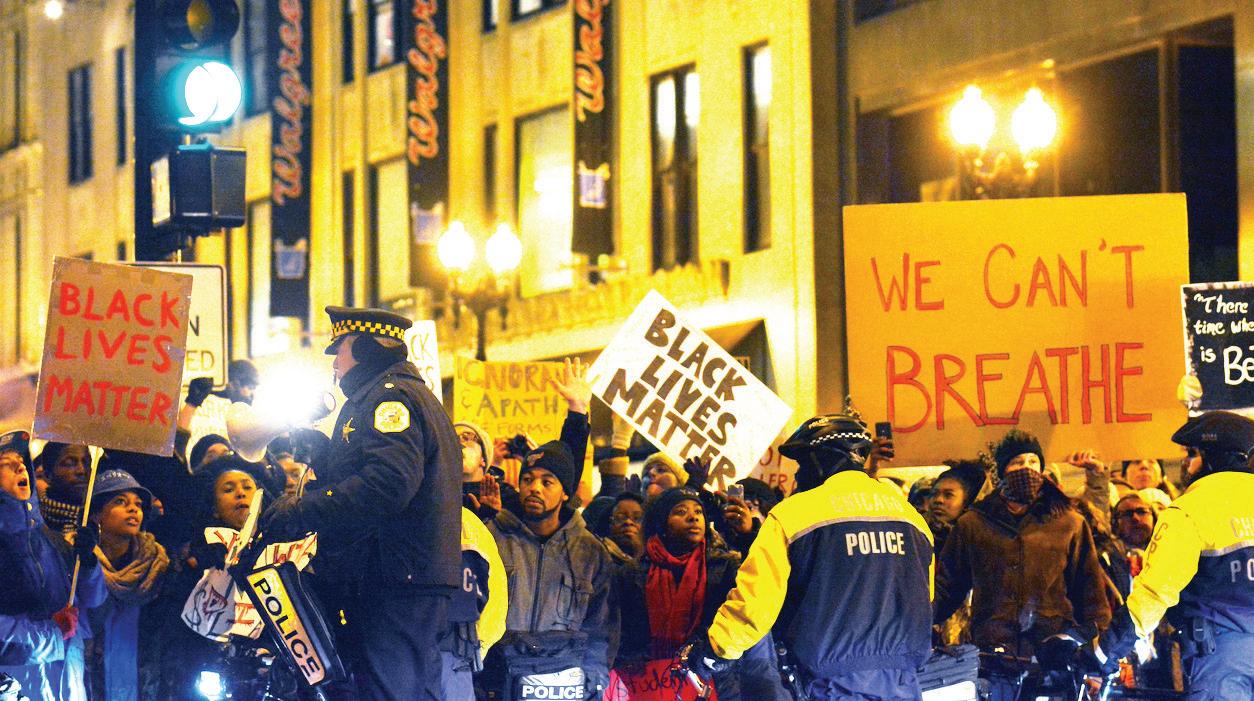
was
“I think that was the first time I took
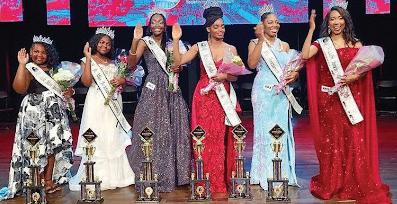
Elzia’s division, Division 6: Madam Juneteenth, adds depth to an event already recognized for its intergenerational celebration of Black womanhood. With six divisions now spanning ages 6 to 39, Minnesota’s pageant is among the most inclusive Juneteenth state pageants in the country.
“This pageant is really open to all,” Elzia said. “It doesn’t matter what you look like. It just matters what work you’re willing to put into it and how much dedication you have.” Founded by Angel T. Jones,
the Miss Juneteenth Minnesota State Pageant is more than crowns and gowns. With the theme “Rediscovering Our Culture and Redefining Our Freedom,” contestants participate in workshops, essay writing, interviews, and community-building events designed to connect them to Black history, their personal voice, and one another.
“To me, rediscovering our culture is about staying grounded in your identity, especially when political landscapes are trying to erase it,” Elzia said. “We’re in a time where DEI is under attack, and rights we thought were basic are being
By Isabella Canizares Contributing Writer
The Minnesota Humanities Center (MHC) is celebrating Juneteenth with a series of events across the Twin Cities, honoring the history, culture, and continued struggle for Black freedom and equality.
Juneteenth, also known as Emancipation Day, commemorates the emancipation of enslaved African Americans at the end of the Civil War. Though the holiday dates back to 1865, it was not recognized as a federal holiday until 2021 and became a Minnesota state holiday in 2023.
Kevin Lindsey, CEO of the MHC since 2019, said public awareness of Juneteenth has grown significantly in recent years.
“I thought with the passage of Juneteenth at the national and state level that we could shore up something painfully obvious,” Lindsey said. “Too many people in the United States do not know about the history of America through the lens of African Americans.”
The MHC is hosting four public events in recognition of the holiday, beginning June 18 with a conversation led by culinary historian and au-
thor Dr. Jessica B. Harris. The event, titled “Feeding Our Souls – The Essence of Juneteenth Joy,” will explore the historical significance of food in Black culture and storytelling. Attendees will also sample dishes prepared by local chefs.
“It’s a great opportunity to see how influential African American cooking has been,” Lindsey said. “Sometimes people have very narrow views of what the contributions have been for African Americans. We’ll have many different types of food being prepared here in the Twin Cities.”
On June 19, the MHC will host its annual Juneteenth Brunch in Minneapolis. Civil rights attorney and former NAACP Legal Defense Fund president Sherrilyn Ifill will lead a discussion on community, justice, and civil rights at a time when many say democratic values are under threat. The programming continues into the following week, with a June 25 screening of “Reconstruction Destructed,” a documentary co-produced by MHC and OMG Studios. On June 27, the center will host a theatrical performance of “Kumbayah the Juneteenth Story: Special Edition,” written by Minnesota playwright Rose McGee.
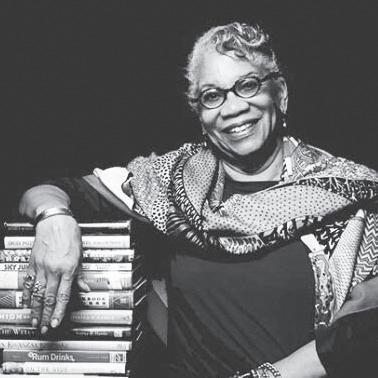

tions elsewhere are struggling.
“If you were to travel an hour to the east in Wisconsin, you might have to knock on a door hard, because they had to furlough everybody,” Lindsey said. “They are not alone. Many humanities councils rely heavily on federal funds.”
Despite challenges, Lindsey said the center is already envisioning future Juneteenth programming. “We’ve had at least some conversations about maybe we should do music, maybe have a concert to go along with the brunch,” he said. “I think what I’d like to see is this balancing of education and the joy of living.”
Lindsey said MHC also plans to bring the “Reconstruction Destructed” documentary into K–12 public schools across the state.
system in the United States. If we fail to appreciate that history, it allows it to ferment and grow.”
was right — this work is not the work of one administration or one judicial decision,” he said.
“It’s a work of a lifetime.”
“When we talk about African Americans breathing for the very first time freedom on these shores, and going to work right away starting colleges and universities — it’s nothing short of miraculous what those ancestors did in the first 20 years after the Civil War,” he said.
“There are some individuals who would seek to diminish and try to restore them to the lowest place in the caste
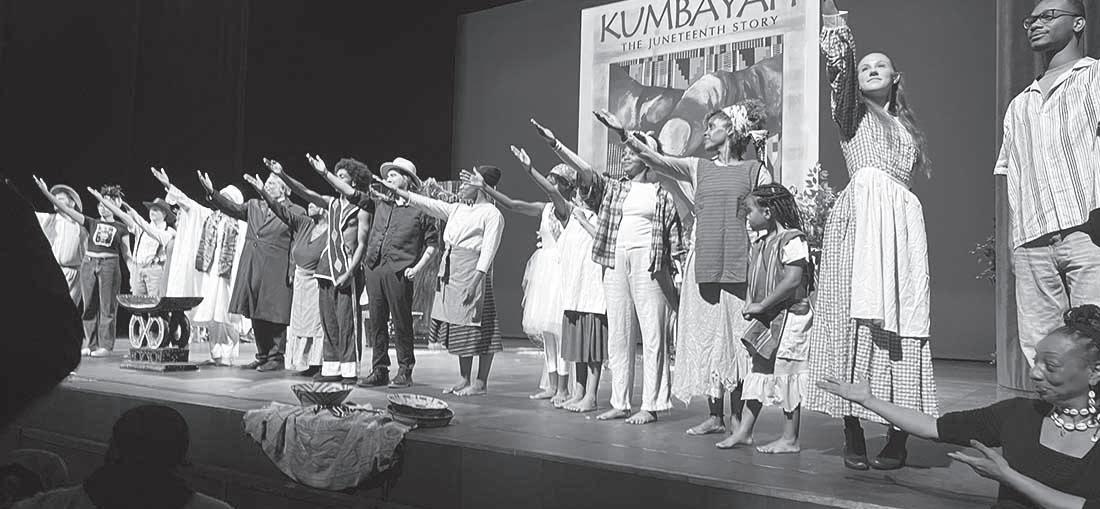
This year’s Juneteenth celebration also comes as Minneapolis marks five years since the murder of George Floyd, which sparked global protests against racial injustice and police violence.
“George, unfortunately, was not the first, and he was not the last,” Lindsey said. “How do we redouble our commitment to ensuring that we are all treated equally under the law?”
Lindsey said Floyd’s death was a reminder that the fight for justice is ongoing. “John Lewis
This year’s celebration also takes place amid cuts to federal funding for humanities initiatives. The current presidential administration has proposed reductions to the National Endowment for the Humanities, which funds cultural programming across the country.
While MHC still receives support from Minnesota’s Legacy Amendment — a voterapproved initiative that allocates sales tax revenue to arts, culture and history — Lindsey warned that similar organiza
MHC Juneteenth 2025 event schedule • June 18 – St. Paul Feeding Our Souls – The Essence of Juneteenth Joy 5:15 to 8:00 p.m.
Minnesota History Center 345 W Kellogg Blvd • June 19 – Minneapolis Brunch and Community Conversation 9:15 to 11:15 a.m.
Quincy Hall
1325 Quincy St. NE • June 25 – Minneapolis Documentary Screening: “Reconstruction Destructed” 6:00 to 9:00 p.m. Capri Theater 2027 W. Broadway • June 27 – St. Paul Theatrical Performance: “Kumbayah the Juneteenth Story – Special Edition” 2:00 to 4:00 p.m. The O’Shaughnessy at St. Catherine University 2004 Randolph Ave.
Tickets and full event details are available at www.mnhum.org.
Canizaresis
at the Capitol offers something for everyone
By Jasmine McBride Associate Editor
This year’s Juneteenth celebration at the Minnesota State Capitol will feature more than music and food — it will be a launchpad for economic empowerment, wellness, and civic engagement.
The annual family-friendly event, organized by the ANIKA Foundation in partnership with Ramsey County and the Council for Minnesotans of African Heritage, will take place on Saturday, June 21, with soul singer Dwele headlining the main stage.
“This is what it looks like

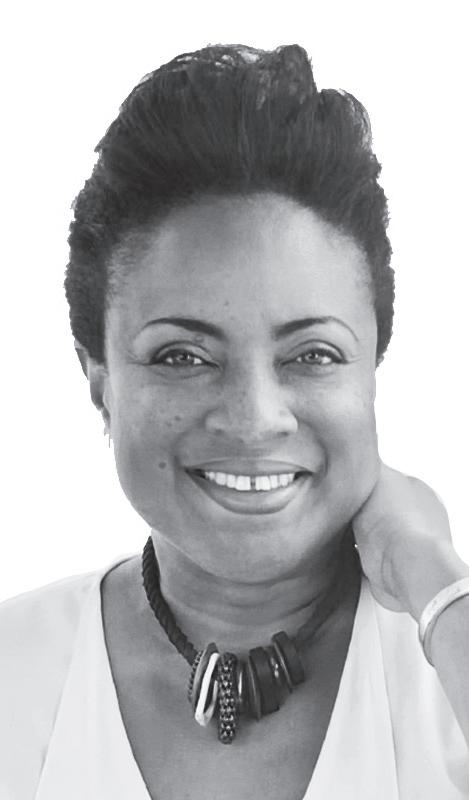
recruitment managers and learn what’s out there.”
She says the career fair became essential given the political landscape and rollback on DEI. Organizations that are committed to diverse working spaces will be available to explore the possibilities.
“We are meeting the needs of the people,” Robbins said.
Another new initiative is the Community Empowered Cohort, an evolution of the foundation’s earlier “Women Empowered” program. Backed by U.S. Bank, the eight-week cohort will support both men and women beginning the homebuying process, with access to mentorship, case management, and down payment assistance.
One of the most anticipated additions is the public launch of Arise Community Credit Union, a digital financial institution born out of years of organizing following the 2015 killing of Jamar Clark. Representatives from the credit union will be on site at the Capitol to open accounts and introduce themselves to the public.
“They chose to launch at our event, and it’s a perfect fit,” Robbins said. “It flows directly into our Juneteenth theme — uplifting Black excellence, creating access, and building power.”
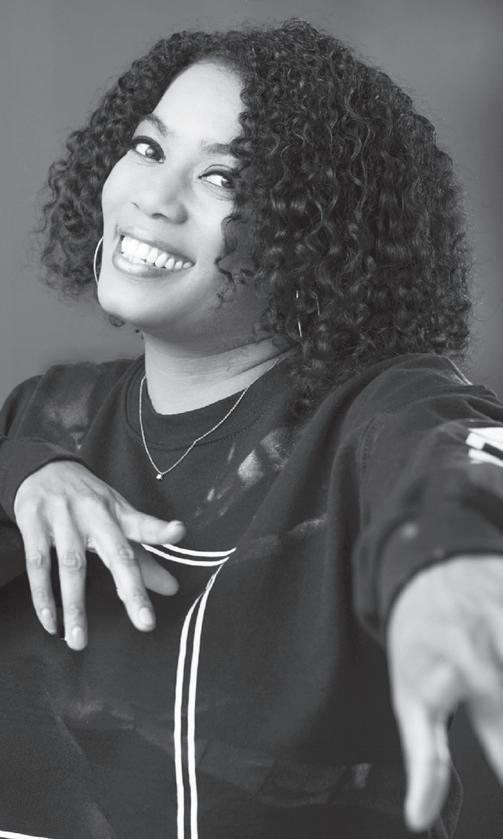
wide listening sessions, peakout parties promoting breast cancer screenings, and an advisory council working to envision the “ideal, safe workplace of the 21st century.”
Still, Robbins emphasized that Juneteenth remains a celebration at its core. “You’ll hear Afrobeat, jazz, hip hop and R&B,” she said. “You’ll taste cuisine from across the diaspora. It’s a spiritual and cultural feast, and it’s free.”
when we curate intentionally,” said Dr. Anika Robbins, founder of the ANIKA Foundation. “We’re honoring our ancestors, yes, but we’re also charting a course forward focused on health, wealth and opportunity.”
New to this year’s celebration is a career fair featuring state agencies recruiting for open roles and engaging in informal conversations with community members. “It’s a soft introduction,” Robbins explained. “We know people may not come in that spirit, but it’s a great opportunity to meet
“We are meeting the needs of the people.”
“This came out of our Covid-19 work, where we were a trusted messenger connecting people to resources,” said Robbins. “Now we’re focusing on wealth creation through homeownership.”
The Capitol gathering is the centerpiece of a broader series of Juneteenth events organized by the Minnesota Humanities Center in collaboration with local partners:
June 18, St. Paul: “Feeding Our Souls – The Essence of Juneteenth Joy” at the Minnesota History Center
June 19, Minneapolis: Brunch and community conversation at Quincy Hall
June 25, Minneapolis: Screening of “Reconstruction: Destructed” at the Capri Theater
June 27, St. Paul: A special edition theatrical performance of “Kumbayah the Juneteenth Story” at The O’Shaughnessy Robbins noted that while Juneteenth officially became
a public holiday in Minnesota in 2021, its observance has always been about more than commemoration. “From the start, we’ve made this a resource-driven celebration,” she said. “That includes food distribution, health screenings, and civic education.”
This year’s event will again feature Clinic 555 offering STD testing, WIC services, mental health support, and more. Attendees can also participate in a survey related to the foundation’s latest project: a Workplace Wellness Initiative funded by the Minnesota Department of Health.
“We’re showing the correlation between workplace stress and health disparities,” Robbins said. “Yes, we talk about policing, but we also need to talk about the workplace. It’s a root cause of trauma and illness in our community.” The initiative includes state-
Additional performances by local funk band the Maxx Band, rapper Lewiee Blaze, Afrobeat artist Ceaser Weah and more will keep the event going with Emcee Vanessa Graddick on the mic.
The ANIKA Foundation will also continue its tradition of honoring servant leaders with its Community Griot Awards. Scholarships totaling $5,000 will also be awarded to high school graduates and college students.
More than anything, Robbins hopes attendees walk away with a sense of purpose.
“When we take care of Black people, we take care of everyone,” she said. “This is about joy, yes, but it’s also about justice and creating the future we deserve.”
Registration isn’t required. For more information about the ANIKA Foundation, visit www. theanikafoundation.org.
Jasmine McBride welcomes reader responses at jmcbride@ spokesman-recorder.com.


By Aria Binns-Zager Staff Writer
The corner of 36th Street and Lyndale Avenue South buzzed with energy Sunday, June 8 as neighbors, vendors and local leaders came together to celebrate the 20th anniversary of 36 Lyn Refuel Station. The event marked two decades since Lonnie McQuirter’s father first acquired the BP-affiliated convenience store in 2005 and honored what that corner has come to represent: innovation, sustainability and community.
With free food, music, and vendors like Benny’s Food Truck and Angry Line Cook MN lining the block, the event was more than a party. It was a reflection of 36 Lyn’s mission.
“This store has always been about more than just filling your tank,” said customer Aisha R., who’s been stopping by for more than a decade.
“It’s about filling your soul too,
supporting local makers, seeing your neighbors, feeling welcome.”
In 2007, McQuirter officially took over operations after leaving his position at Häagen-Dazs and began reshaping the store’s vision.
“I always thought we could do more than sell chips and gas,” he said. “Why not offer bananas, fair-trade coffee, vegan snacks — and create a space that’s clean, cool, friendly and local?”
Today, 36 Lyn Refuel Station is considered a national model for community-first, sustainability-minded retail. Its shelves are stocked with organic eggs, Minnesota-made honey, kombucha, hot sauces, and fresh-ground Peace Coffee.

As early as 2014, McQuirter installed one of Minneapolis’ first EV charging stations — at a time when demand was still uncertain. “I believed it could be a smart business decision,” he wrote in a 2023 op-ed for the Minnesota Reformer.
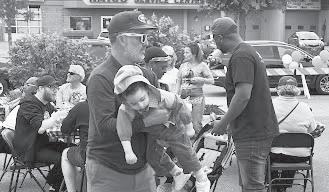
That $100,000 investment paid off, not just financially, but in setting a standard for environmental leadership. By 2015, 36 Lyn ran entirely on wind energy, thanks to a partnership with Xcel Energy. The store also upgraded to energyefficient LED canopy lighting and has continued expanding its electric vehicle infrastructure.
“We want to be part of a more sustainable Minneapolis,” McQuirter said. “Not just react to it.” It’s not just the energy that’s local. More than 20% of the store’s inventory is sourced from small producers across Minnesota.
“You can get your gas and
grab something handmade by someone in your city, and that’s powerful,” said local artist Jameel W., who attended the anniversary block party. “I come here because they support us. That’s rare.”
“We want to be part of a more sustainable Minneapolis.”
The store’s evolution has drawn national attention. McQuirter has been featured in Kiplinger, named to the Minneapolis/St. Paul Business Journal’s “Fast 50,” and serves on national boards including the National Association of
Convenience Stores (NACS) and Conexxus. His voice is increasingly sought in national retail advocacy, particularly around equity, hiring and diversity.
Yet 36 Lyn’s success hasn’t come at the cost of community — quite the opposite. McQuirter is a past Volunteer of the Year for the Lyndale Neighborhood Association and a longtime supporter of Joyce Food Shelf, Our Streets Minneapolis, and Soo Visual Arts Center.
“Representing the good of retail and the good of the neighborhood in a respectable way” has been his guiding mantra.
Peace Coffee’s blog calls 36 Lyn “an independently owned, innovative convenience store” with a heart. Customers echo that.
“You walk in, and they know your name. That matters,” said local resident Marcus P. during Sunday’s celebration. “There’s a vibe here that’s clean, respectful, affirming.”
That culture extends to the staff as well. Since 2017, McQuirter has paid employees about $4 more per hour than the national average for convenience store jobs. He has instilled core values of cleanliness, friendliness and professionalism that are evident in the store’s spotless counters and consistent customer service.
Two decades in, 36 Lyn represents what’s possible when commerce, conscience and community align. It’s an independent, values-driven business that centers people and place. It’s an environmental trailblazer. It’s a workplace with integrity.
And as of this weekend, it’s officially a 20-year neighborhood landmark.
As McQuirter looked out on the crowd — families dancing, vendors smiling, neighbors reconnecting — one could say: This is what it looks like when a corner store becomes a cornerstone.
Aria Binns-Zager welcomes reader responses at jmcbride@ spokesman-recorder.com
The Minnesota Public Utilities Commission designated CenturyLink as an Eligible Telecommunications Carrier within its service area for universal service purposes. CenturyLink’s basic local service rates for residential voice lines are $16.32-$33.50 per month and business services are $34.61-$60.89 per month. Specific rates will be provided upon request.
CenturyLink participates in the Lifeline program, which makes residential telephone or qualifying broadband service more affordable to eligible low-income individuals and families. Eligible customers may qualify for Lifeline discounts of $5.25/month for voice or bundled voice service or $9.25/month for qualifying broadband or broadband bundles. Residents who live on federally recognized Tribal Lands may qualify for additional Tribal benefits if they participate in certain additional federal eligibility programs. The Lifeline discount is available for only one telephone or qualifying broadband service per household, which can be either a wireline or wireless service. Broadband speeds must be at least 25 Mbps download and 3 Mbps upload to qualify.
A household is defined as any individual or group of individuals who live together at the same address and share income and expenses. Services are not transferable, and only eligible consumers may enroll in these programs. Consumers who willfully make false statements to obtain these discounts can be punished by fine or imprisonment and can be barred from these programs.
If you live in a CenturyLink service area, visit https://www.centurylink.com/aboutus/comm unity/community-development/lifeline.html for additional information about applying for these programs or call 1-800-201-4099 with questions.
This scratch game’s more fun than a boombox with volume set to the max. You could win up to $88,000 in boss retro style. No Time Machine required. Shoulder pads encouraged.











Whether you’re looking for a way to commute to work or school on your own time, or you’ve been saving up for your own set of wheels to go on countless adventures, in today’s financial climate, managing your vehicle loans efficiently is key. It could help you save money and limit potential headaches down the road.
Here are some helpful strategies to manage your vehicle payments:
• Budget wisely. Before signing on the dotted line, make sure that your monthly payments align with your financial goals. Don’t stretch your budget too thin. It’s better to set your car budget first and then find a vehicle that fits that budget, rather than finding a car and potentially being disappointed if it’s more than you can afford.
Using a car payment calculator can help estimate your monthly car payment for different scenarios, by inputting the ballpark amount you’d like to finance along with some other basic info.
• Automate your payments.

stretches of uninterrupted miles, cruise control will help your car use less gas by maintaining a steady speed.
• Regular maintenance. Routine check-ups can also help you save money on gas but also help prevent expensive repairs in the future. Changing the oil regularly, checking tire pressure, and following the manufacturer’s maintenance schedule are great ways to keep your car and wallet happy.
The true cost
For more auto budgeting tools and tips, visit autofinance.chase. com/.
For informational/educational purposes only: Views and strategies described in this article or provided via links may not be appropriate for everyone and are not intended as specific advice/ recommendation for any business. Information has been obtained from sources believed to be reliable, but JPMorgan Chase & Co. or its affiliates and/or subsidiaries do not warrant its completeness or accuracy. The material is not intended to provide legal, tax, or financial
Some lenders offer the option to automate your monthly payments. This can be an extremely useful tool as it helps you avoid missing your payment and potential late fees.
you contact your lender to confirm this is an option.
minimize the impact on your wallet, including:
• Make biweekly payments. Instead of monthly payments, consider paying half of your monthly amount every two weeks. By making biweekly payments, you end up making a total of 26 payments in a year, the equivalent of 13 monthly payments rather than 12, helping you pay off the loan a little earlier. Make sure


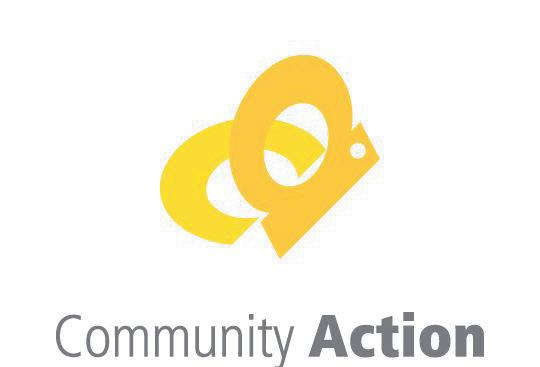
• Consider shorter loan terms. Though longer loans often mean smaller monthly payments, they usually come with higher interest rates, which typically ends up costing you more over time. If available, opt for a shorter loan term to save on interest.
Insurance, gas and maintenance costs
Though these costs are generally unavoidable, there are a few simple ways that you can
• Shop around for insurance. Shopping around for rates can help you compare different insurers, as rates can vary widely between providers. This way, you have a better chance of finding a policy to suit your needs at a price that won’t break the bank.
• Fuel-efficient driving. Perhaps an unexpected way to use less gas is through your driving habits. Avoid making hard stops and starts. For long
The total or true cost of car ownership typically goes beyond just the sticker price, although the sticker price is typically the largest of all the expenses associated with buying a car. Other expenses that usually get bundled into the total cost include sales taxes, vehicle registration fees, maintenance and running costs, car insurance and financing.
Be sure to do your homework before stepping on the lot. There are many tools available that can help you plan for additional costs, such as sales taxes, registration fees, and insurance — which can vary depending on the car make, model and even the color.
& Co. and its affiliates are not responsible for, and do not provide or endorse third party products, services, or other content.



Community Action Partnership of Ramsey and Washington Counties (CAPRW) is seeking vendors to supply 50-60 regularly purchased items used to weatherize the homes of income-eligible clients across Ramsey, Washington, and Anoka Counties.
If you sell or distribute products used in weatherization, insulation, air sealing, or energy conservation, and would like to participate in a Request for Proposal (RFP) process for these items please email sjohnson@caprw.org to request a detailed list of the items, specifications, and estimated annual volumes. The list includes - but is not limited to - products such as smoke detectors, lumber, plywood, LED light bulbs, various types of tape, caulk, light switch covers, and more.
CAPRW encourages all minority and women owned business enterprises to apply.




Continued from page 1
stretching from the college campus to the steps of the State Capitol. Protesters hung signs from overpasses and waved banners as they moved en masse toward the Capitol grounds.
The Minnesota State Patrol estimated about 25,000 attendees in St. Paul, while local group 50501 Minnesota placed the crowd at more than 80,000. Across the U.S., NPR reported more than 5 million protesters participated in “No Kings” demonstrations — making it one of the largest coordinated protests in American history, surpassing the 1986 Hands Across America event.
Speakers at the Capitol included Attorney General Keith Ellison, activist Nekima Levy
Continued from page 1
Though he walked away with the funds, Coleman said the encounter left him deeply unsettled. “I wasn’t greeted or asked if I had an account,” he said. “I was just told the check was fraudulent.”
Coleman said he contacted Commerce Bank’s Chief Banking Officer Joshua Burgess two days later. According to Coleman, Burgess acknowledged
Continued from page 1
now. We are at a crossroads: This week we’ll celebrate Juneteenth, while still visible in the rearview mirror sits the fiveyear anniversary of the murder of George Floyd.
One of the most uncomfortable things to process about the murder of George Floyd is how much more improbable it is for his murder to have garnered the level of attention it did than it is for the murder to have happened in the first place.
No group in America is killed by police more than Black men. Yet most of these deaths unfold in relative silence, drawing little to no attention in the news cycle. George Floyd’s murder broke that pattern, not because it was more horrific than others, but because of a perfect, terrible storm.
It was Memorial Day. There was a video that was agoniz-
Continued from page 1
the pageant’s advisor, Rev. William Pierce. “These six queens, and all the contestants, are outstanding role models for other young people in the community,” he said. “Their intelligence, poise and character were evident to everyone attending today’s pageant.”
Elzia described the competition as less about rivalry and more about resilience. Division 6 had the largest group of contestants this year, with nine women — many of them fulltime professionals, mothers or caregivers juggling responsibilities alongside pageant preparation.
“It’s an interesting road being in our 30s and being in a pageant,” she said. “A lot of us are doing this on top of everything else — raising kids, working,
it rise into authoritarian rule.
Armstrong, poet Kyle Tran (known as Guante), veteran Jacob Thomas, and Monique Cullars-Doty. The day featured performances, poetry, and impassioned speeches centered on resisting authoritarianism.
“We gather here today as part of a No Kings movement,” Levy Armstrong said. “Not because we hate this country, but because we love it too much to let
“This same administration is targeting DEI programs, Black history, truth in education, and the rights of poor people to exist and be seen,” she added. “We are not afraid, and we do not bow to kings.”
Protests were also reported in Rochester, Duluth, Anoka, Farmington, Stillwater, Ely, Grand Rapids, and dozens of

the situation was mishandled and asked how the bank could make things right. During the phone call, Coleman said he told Burgess he wanted to take time to think about it over the weekend and followed up by email, but never heard back.
“I ended up following up again not too long after. Still nothing,” he said.
Frustrated, Coleman retained attorney Rich Hechter in December, who submitted formal inquiries to the bank in February. While Commerce Bank responded, Hechter said their delayed replies lacked key documenta-
ingly long and left little to question. Derek Chauvin’s apathy was clear; his face remained calm, unmoved, symbolic of the face of a system that had long stopped seeing our humanity.
All of this took place against the backdrop of the pandemic, which had us locked at home, allowing it to grasp the attention of millions in an era when our collective attention spans have diminished to those of goldfish due to constant media cycles.
What followed was equally improbable — the largest protest in American history, mobilizing an estimated 26 million people and millions more worldwide marching in the streets. We saw unprecedented resource mobilization. National organizations like Black Lives Matter received $90 million in donations following the murder. Local organizations like the Minnesota Freedom Fund grew from basically a $150,000 organization to a nearly $50 million organization virtually overnight. Even within my own orga-
caregiving. But we made it. And we made it together.”
She recalled the emotional moment when her fellow division finalists ran up to hug her after her win. “It grounded me. I wasn’t expecting it. That moment reminded me we were all rooting for each other.”
Now crowned, Elzia sees her new role not as the end of a journey but the beginning of her platform. She is currently producing a documentary uplifting the voices of Black women in Minnesota who are survivors of sexual assault.
“The stories of Black women are incredibly important to me,” she said. “I think they’re not heard enough. And when they are, they’re often judged or dismissed. I want to change that.”
Her work aligns with the pageant’s broader goal: to amplify Black excellence in all its forms, from self-expression to civic impact. “Injustice infuriates me, but it also inspires me,” Elzia said. The documentary
other cities across Minnesota.
Many demonstrators nationwide expressed outrage at a taxpayer-funded military parade in Washington, D.C., celebrating the 250th anniversary of the U.S. Army — and coinciding with President Trump’s birthday. The parade reportedly cost $25-$45 million and drew far fewer than the anticipated 250,000 attendees.
The FBI and local law enforcement continue investigating suspect Boelter’s actions and motivations. Authorities have not yet released information about how he accessed the victims or whether others may have been involved.
However, upon Boelter’s vehicle search a notebook with 60-70 names of alleged targets was retrieved. This list contained names like Sen. Amy Klobuchar, Sen. Tina Smith, Rep. Ilhan Omar, Attorney General
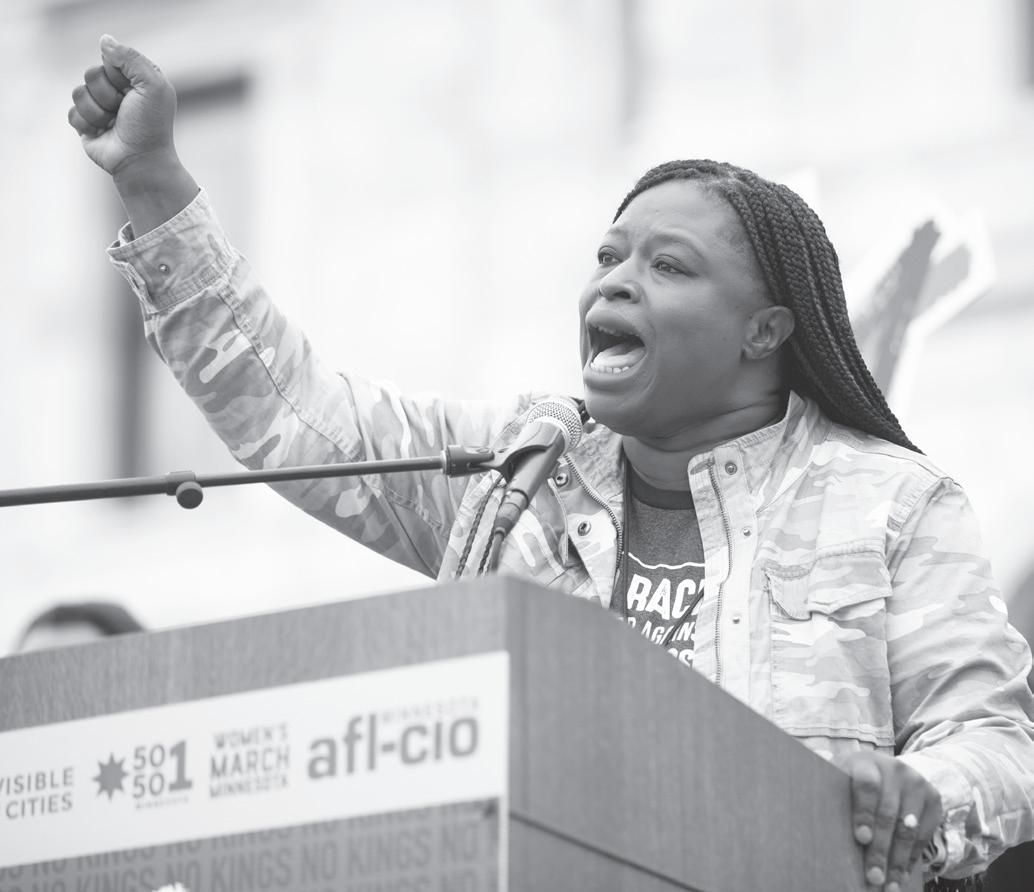
Keith Ellison, and more — mostly DFL elected officials — as well as abortion providers.
As of June 16, Boelter is facing charges of two counts of second-degree murder and two counts of attempted second-
degree murder, according to a criminal complaint.
Chris Juhn is a contributing writer and freelance photographer for the Minnesota Spokesman-Recorder.
tion — including the request for evidence supporting Johnson’s claim that the bank does not cash checks for non-customers.
“They responded to the summons and complaint in May, but nothing further,” said Coleman.
“It’s been as quiet as a church mouse since then.”
Hechter, who regularly handles cases involving racial discrimination in banking, said Coleman’s experience reflects a troubling pattern.
“These types of cases often go ignored until a formal lawsuit is filed,” he said. “It’s unfortunate, but it’s a trend I’ve seen too many
nization, Black Men Teach, our name, which at one point could have been a limitation, had now become our greatest asset. Suddenly, powerbrokers were seeking coalitions.
Nationally, the CEO Action for Racial Equity fellowship’s influence grew exponentially. And locally, the Minnesota Business Coalition for Diversity and Inclusion brought together some of the most influential leaders from corporate giants in the community. I felt a kind of hope, a kind of faith in humanity, that I had not felt before in my lifetime.
But now, five years later, we have to face a difficult truth: We mistook momentum for a movement.
The largest policy conversations of 2020 narrowed quickly to police reform. But police violence is a symptom, not the root.
The real issue is that Black men in America, as Dr. Kunjufu has termed it, have been in a state of emergency, and we have grown numb to the alarm.
When 1 in 5 Black men born in 2001 are projected to go
is expected to enter post-production this fall, with a planned
“These six queens, and all the contestants, are outstanding role models for other young people in the community.”
2026 release.
All contestants competed in five categories: Opening Number, Essay, Evening Gown, Onstage Q&A, and Personal Interview. A panel of five Twin Cities community leaders served as judges. Dr. Stephanie Burrage, CEO of Collaborative Student Transportation, emceed the event.
For Elzia, the essay portion proved especially meaningful.
“It was the only time the judges really got to hear my story,” she said. “During the pageant, you’re
times, where financial institutions don’t take these situations seriously until there’s legal pressure.”
Hechter also conducted a recorded interview with Renna, the Fieldwork president, on Dec. 11. In the recording, she confirms that Coleman sought her help and that she accompanied him to the bank. She described Johnson as “flustered,” though unsure why.
“Not until Rich [Hechter] showed me the recording did I hear that excuse. No one ever said they wouldn’t cash it because I wasn’t a customer.”
filing a formal lawsuit. “They missed deadlines,” he said.
Coleman said he wants accountability from the bank and hopes any resolution includes annual staff training around diversity, equity and inclusion.
“They accused me of a serious felony,” Coleman said. The Minnesota SpokesmanRecorder contacted the Edina Commerce Bank branch. Johnson answered the phone but declined to comment.
As of this week, no resolution has been reached. Hechter says they have tried to avoid
Renna told Hechter she stayed at the bank after the interaction with Johnson to make sure Coleman was okay. Renna also said Johnson claimed Coleman had been told about the bank’s non-customer policy. Coleman disputes that claim. “I was never told that,” he said.
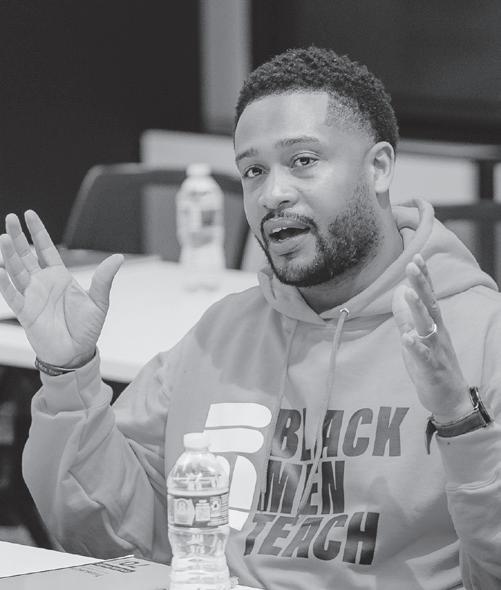
When Black male college enrollment has dropped by more than 25% over the past decade, you are in a state of emergency.
To combat this, we need a comprehensive, long-term strategy to support Black men and boys in every facet of life: Education.
Housing. Employment. Health. Mental wellness. Belonging.
Jasmine McBride welcomes reader responses at jmcbride@ spokesman-recorder.com.
need something similar here in Minnesota, but it must transcend annual reports and be independent of government.
to prison, you are in a state of emergency.
When homicide is the leading cause of death for Black males ages 15-34, you are in a state of emergency.
When 60% of Black boys in fourth grade read below basic proficiency, you are in a state of emergency.
When the median net wealth of Black households is less than one-tenth that of white households, and Black men face the steepest barriers to mobility, you are in a state of emergency.
just a number. So in my essay I tried to reflect who I am, what I care about, and how my culture shaped that.”
She said the interview portion also surprised her, in a good way. “Right before I went in, I talked to another contestant who said, ‘Oh my God, I loved it!’ And that helped shift my mindset. I realized, this is about showing who I am. That gave me peace.”
Her advice to future contestants: “Go in there confident, even if you don’t feel it. If you exude it, eventually it’ll meet you where you are.” And most importantly? “Focus… Focus on yourself, on the moment, and what the pageant is asking of you. Soak in all the moments. They’re all important.”
The 2025 titleholders • Little Miss Juneteenth (ages 6-9): Brielle Salifu, Apple Valley • Junior Miss Juneteenth (ages 10-13): Nyelle Salifu, Apple Valley
We do not need to start from scratch because a model already exists: the U.S. Commission on the Social Status of Black Men and Boys. Founded in 2020, the commission produces annual reports addressing the current conditions affecting Black men and boys in America and makes policy recommendations.
2020 was a spark that lit the world. 2025 must be the year we turn that fire into focus.
It was inspired by the Florida Council on the Social Status of Black Men and Boys, which has been operating since 2006. We

• Teen Miss Juneteenth (ages 14-18): Khamani Washington, St. Louis
•
• Ms. Juneteenth (ages 25-
We need a central space where Black men and others who are currently working on these challenges can collaborate, co-create strategies across a variety of organizations, and commit to executing them over the course of a realistic timeline long enough to chip away at these huge systemic issues. It’s not too late. 2020 was a spark that lit the world. 2025 must be the year we turn that fire into focus. Minnesota, let’s finish what we started.
Markus Flynn is the founder of Black Men Teach. For more information, visit www.blackmenteach.org.
and
The Miss Juneteenth Minnesota State Pageant is a 501(c) (3) nonprofit dedicated to creating platforms where Black girls and women can thrive through workshops, scholarships, and mentorship opportunities.
As Elzia puts it, “Being connected to one another and to our culture is empowering. That’s how we move forward. That’s how we redefine freedom.”
For more information, visit www.missjuneteenthmn.org.
Aria Binns-Zager welcomes reader responses at abinns@ spokesman-recorder.com.
‘The
By Aria Binns-Zager Staff Writer
On a snowy highway between Little Rock, Arkansas, and Minneapolis, CC Mercer Watson found herself driving into a new chapter of her creative life — one stitched not just in fabric, but in memory, identity and Black history. That road, in all its uncertainty, became the foundation for “The Road Less Traveled: An Ode to the Green Book,” Watson’s latest textile exhibition, now on view at Soo Visual Arts Center through June 29.
Part spiritual cartography, part love letter to the Black travelers who dared to chart their own paths through America, Watson’s exhibition is anything but conventional.
“I knew I was going to have to make that drive again. I knew it would be hard,” she recalled.
“But I also knew I would be honoring the people I come from. And I thought, what better way to do that than through art rooted in the Green Book?”
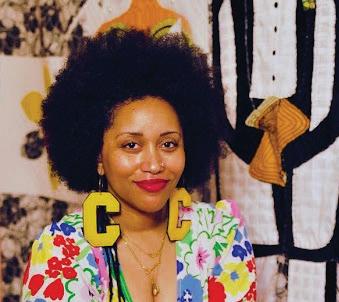
fluences: “The Wiz.”
“‘The Wiz’ is the ultimate hero’s journey,” she said. “Dorothy had to go on this wild, winding road to discover that everything she needed was already inside her. That speaks to Black travel. That speaks to womanhood. That speaks to how we move through the world as Black people — searching, surviving, becoming.”
Watson’s own journey is steeped in personal legacy and cultural memory. Raised in a family of community builders and truth-tellers — her father, the late attorney Christopher C. Mercer Jr., was a prominent civil rights lawyer — she sees art as an extension of activism.
guided by intuition, design diaries, and fabric combinations that refused to sit quietly on shelves.
Alongside the textiles is “The Green Book of Poems,” a companion literary work that offers a deeper entry point into the exhibit’s themes of travel, safety, grief and selfdiscovery.
“Poetry was my first language,” Watson said. “I’ve been writing since I was six years old. Some of these poems were written for specific quilts. Some came before. Some arrived at the last second — just in time.”
This blending of mediums — poetry and quilting — acts like a call and response. The visuals speak, and the words echo, challenge and expand what the eye can see.
hibits sparked broader dialogue about community, memory, and Black womanhood.
“That’s what I love about Black folks,” Watson said. “We don’t just look — we feel, we connect, we remember.”
Beyond the gallery, Watson is building more than art — she’s building infrastructure. She’s the founder of A BLACK SPACE, a nonprofit that centers cultural preservation, healing and storytelling through oral tradition and ancestral craft.
“In Arkansas, we are both blessed and burdened,” she said. “It’s a red state, and the oppression is real. But there’s beauty here. We bloom in spite of it.”
The Green Book, officially known as “The Negro Motorist Green Book,” was first published in 1936 by Victor Hugo Green, a Harlem-based postal worker. Created during the Jim Crow era, the travel guide served as a vital lifeline for Black Americans navigating a deeply segregated country. It listed safe places to eat, sleep and refuel — offering protection and dignity to travelers who risked hostility, violence, or denial of service on the open road.
amined not only as a historical artifact, but as a cultural blueprint for safety, self-determination and survival in a country still grappling with racial inequities.
“I’m a culture bearer,” she said. “I honor the dead through my living. Through every stitch, I hear my ancestors telling me, ‘Keep going.’”
“I honor the dead through my living. Through every stitch, I hear my ancestors telling me, ‘Keep going.’”
More than just a directory, the Green Book was a bold act of resistance — a testament to Black resilience, entrepreneurship and community care. Today, its legacy is being reex-
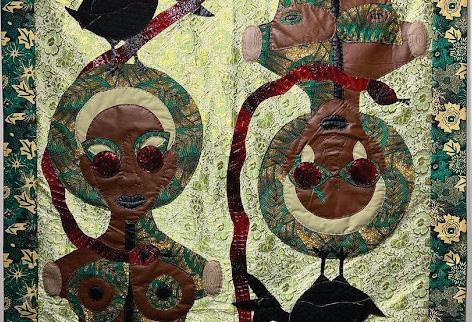
Watson — a poet, playwright, actress, activist, and self-described “magnetic gem from the Natural State” — brings more than 1,000 hours of hand-stitched labor into this immersive installation. Every fabric choice, every poem, every line of thread is deliberate. The result is a powerful artistic fusion: an intersection of visual art, literature, ancestral storytelling, and historical reverence that centers the experiences of African American roadtrippers who used the Green Book as both a compass and a shield.
But her inspiration didn’t stop at history. It included one of her greatest childhood in-
Stages Theatre’s ‘Madagascar’ brings wild adventure to life
By Aria Binns-Zager Staff Writer
This summer, the beloved characters from DreamWorks’ “Madagascar” leap from screen to stage in “Madagascar – A Musical Adventure,” opening June 20 at Stages Theatre Company.
The 60-minute production blends music, movement and puppetry into a lively experience designed for young audiences and packed with heart. Performances run through Aug. 3.
At just 13 years old, Takelle Lee takes on the lead role of Alex the Lion, a challenge he embraces with enthusiasm and a sense of purpose.
“Alex is kind of a leader,” Lee said. “And I feel like we have the connection of being a leader of our friends and the leader of making good choices and sometimes, you know, messing up and stuff.”
Lee sees himself in Alex, particularly when it comes to friendships.
“In school, there’s a lot of times where we just grow out of each other,” he said. “Alex and Marty, they kind of come away from each other, but then [always go back]. And that’s kind of how my friendships are, where we would stop being friends and then we would come back together.”
A seasoned performer, Lee began singing at age 8 and gave his first stage performance at 11. He credits the “Madagascar”
cast and crew with helping him build confidence.
“Everybody around me was just so helpful and so supportive, so I got it pretty fast,” he said of learning choreography.
“And everybody’s voice? I love it. Everybody’s voice is just so good and so well balanced.”
His favorite scene is the jazzy, comical number “Steak,” which captures Alex’s largerthan-life energy and appetite in full musical flair.
es Theatre has earned national accolades, including the 2017 Harold Oaks Award for Innovation in Theatre for Young Audiences and the 2018 50/50 Applause Award for promoting gender equity among playwrights. The 2019–2020 season was highlighted by “TYA Today Magazine” for expanding representation, particularly in productions centering youth of color.
Boren-Barrett also directed

At the helm of the production is longtime Artistic Director Sandy Boren-Barrett, who has led the company since 1990. With more than 75 productions to her name, including many world premieres, Boren-Barrett is known for her commitment to youth-centered storytelling and increasing representation on stage. Under her leadership, Stag-
the company’s highest-attended show to date: “Rudolph the Red-Nosed Reindeer: The Musical,” a local holiday tradition. “Madagascar – A Musical Adventure” is choreographed in partnership with Threads Dance Project, a Twin Citiesbased company founded by Karen L. Charles in 2011. Born from personal loss, Threads has created more than 30
Watson’s commitment to hand-stitching is more than a technical choice — it’s a form of devotion. “I stitch exclusively by hand. Every single thread, I put in myself,” she said. “You have to be a special kind of maniac to pour that many hours into your work, and I love it.”
It shows. Her pieces hum with texture, story and time. One of her quilts features a vibrant yellow robe that once served as the aisle runner at her 2023 wedding. Another, a wedding gift to her husband, honors their shared commitment to heritage and future-building. Others in the series were built from scratch,
original works and reached over 2,000 students through educational programming.
Known for its Tapestries Program, which supports emerging choreographers, Threads also hosts community workshops and open rehearsals at Threads Dance Nexus in Minneapolis. The company’s fusion of classical and contemporary movement, along with its community-rooted mission, made it a natural fit for “Madagascar.”
Marketing Manager Laura Kastenbauer emphasized the inclusive environment Stages Theatre aims to create.
“One of the things that I really love about Stages is that it gives an opportunity for people who might not feel
Watson’s work has been exhibited nationally and internationally, from Ghana’s The Studio Accra to Little Rock’s Mosaic Templars Cultural Center. But “The Road Less Traveled” marks a turning point.
It’s not just a show — it’s a reclamation. And Minneapolis, especially in the wake of George Floyd’s murder, offered fertile ground for that reclamation to bloom.
At her artist talk the day after the show’s opening, Black audience members shared powerful stories of their own — growing up in majority-white schools, surviving systemic erasure, and finally seeing themselves reflected in Watson’s textiles.
“A woman told me she saw Elizabeth from ‘The Wiz’ in one of my pieces and burst into tears,” Watson recalled. “That’s the impact I want. I made the art, but it doesn’t belong to me — it belongs to the people who find themselves in it.”
Her collaborator and fellow artist, Khadijah Muse, also contributed deeply resonant work in an adjacent gallery. The conversation between the two ex-
comfortable in different theaters to be able to experience theater in whatever way they wish,” she said. “There’s so many different projects, different ways that you can be involved. It’s amazing.”
Kastenbauer encouraged early ticket purchases, especially for matinee performances. “A lot of the matinees are almost down to the single digits in ticket availability,” she said.
Beyond its visual spectacle and musical energy, “Madagascar – A Musical Adventure” is a story about friendship, freedom and rediscovery, messages that resonate deeply with youth audiences and the young performers who bring them to life.
“It’s about freedom and
Founded on Juneteenth — a holiday she calls “deliciously Black” — A BLACK SPACE holds programming, sends out a monthly newsletter called “The 19th,” and speaks directly to Black audiences about liberation and legacy. This Juneteenth, Watson will speak at a family reunion, reflecting on how freedom lives in the bloodline.
“Our joy is resistance,” she said. “Our stories are sacred.”
“I am walking Black joy,” she said plainly. “It’s not always easy. Getting this work to Minneapolis was hard. I slept on the gallery floor one night finishing the Harriet Tubman piece. But I knew somebody, somewhere, would see it and feel seen.”
She paused.
“When that happens, that’s the reward. That’s the return. That’s why I do it.”
See the work: “The Road Less Traveled: An Ode to the Green Book,” now through June 29, Soo Visual Arts Center, Minneapolis. For more information, visit www.soovac.org.
Aria Binns-Zager welcomes reader responses at abinns@ spokesman-recorder.com.
friendship,” Lee said. “That’s something that really mirrors a lot of what happens in school and in life.”
Whether it’s the humor of “Steak” or the story’s journey toward belonging, the production invites audiences of all ages to laugh, dance, and celebrate together.
Tickets range from $16 to $18, with group discounts available. ASL-interpreted and audiodescribed performances are scheduled for July 11 as part of the theater’s ongoing accessibility initiatives. Tickets are available at stagestheatre.org.
Aria Binns-Zager welcomes reader responses at abinns@ spokesman-recorder.com

By Aria Binns-Zager Staff Writer
As Juneteenth approaches, one artist-scholar is urging Black communities to also remember the everyday rituals of resistance that have quietly fortified generations. Among them: the Black cotillion.
Dr. Nikita Harris, Ph.D., a cotillion historian, professor of organizational communication and executive director of the National Black Debutante Project, is on a mission to preserve the overlooked history of Black debutante balls — ceremonies that have long been misunderstood as superficial or elitist. In fact, as Harris explains, they were never just about gowns and etiquette.
“It was a form of protest and cultural resistance,” Harris said in an interview. “These events affirmed the value and dignity of Black lives, especially during a time that sought to demean and marginalize them.”
processes to uplift and train Black youth, especially girls, in grace, confidence and leadership,” Harris said.
In cities like Minneapolis and St. Paul, local organizations such as Alpha Kappa Alpha Sorority and The Links Incorporated have hosted cotillions for decades. These ceremonies have been powerful celebrations of Black pride, family and self-determination. They’ve also quietly carried forward civic values.
“Many of the organizations behind cotillions were also the first to start voter registration drives or feed-the-hungry programs in their communities,” Harris said. “It wasn’t just about the ball, it was about modeling service and legacy.”
Today, cotillion programs have expanded to include financial literacy, scholarship planning, career preparation and mental wellness alongside traditional social graces.
“These girls are learning
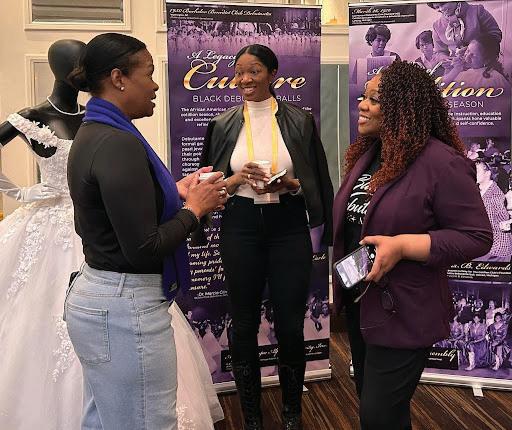
Cotillions emerged as early as 1895, with the first Black debutante ball founded by a Pullman porter — a railroad employee, often Black — in New Orleans. The tradition grew during the Jim Crow era, when Black Americans were systematically barred from white social clubs, pageants, and finishing schools. In response, they built their own.
“African American communities created their own cotillion
how to build wealth, write college essays, and walk into any room with confidence,” Harris said. “It’s evolving, but it’s not declining.”
Raised in a “cotillion family” with generations of women who were formally presented, Harris understands the emotional and cultural weight these events carry.
“It was a rite of passage,” she said, “a moment when your community surrounds you, af-
firms you and says: We see you. You are prepared for the world.”
Despite their significance, most Black cotillions have gone under-documented, their records lost when organizations dissolved or elders passed on. That cultural erasure, and the mainstream misunderstanding of what these ceremonies represent, led Harris to launch the African American Debutante Registry — the first national archive of its kind.
“Cotillions are a declaration that we are beautiful, brilliant, and worthy on our own terms.”
“A lot of this is being thrown away, literally,” Harris said. “People pass away and their children throw out invitations, photos, and program books. That’s our history disappearing.”
The registry, which is now accepting submissions, will feature both historical and contemporary debutantes from across the U.S., including those from Minnesota. Harris has already begun collecting artifacts from Twin Cities–based organizations and said she’s especially eager to preserve the legacy of groups in this region.
“Black families in Minneapolis, St. Paul and surrounding communities have been doing this work quietly for years,” she said. “But their stories matter to the national narrative.”
Harris invites community members to submit memorabilia, photos, invitations, oral histories and more to be included in the registry and traveling exhibit. She is also planning a Juneteenth virtual discussion with five historic cotillion organizations to explore debutante culture as a form of resistance.

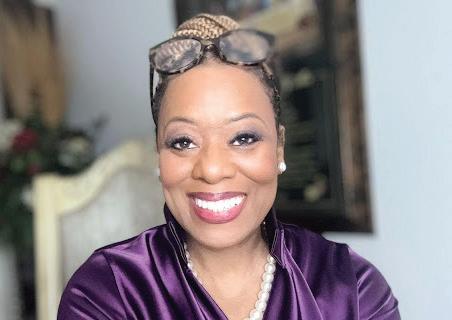
do, we can give future generations something powerful: a blueprint of resilience.”
“Juneteenth is about freedom from bondage, but it’s also about how we’ve defined ourselves in the face of exclusion,” she said. “Cotillions are a part of that. They’re a declaration that we are beautiful, brilliant, and worthy on our own terms.”
The African American Debutante Registry is not a closed archive. It is alive, expanding and community-built. Harris is actively encouraging local programs, cultural centers, and Black families to partner with her to host exhibitions and
contribute stories.
“This is an ongoing process,” she said. “But we can’t wait for institutions to preserve us. We have to take the initiative to document and celebrate ourselves.”
With political threats to Black history mounting — from curriculum rollbacks to the elimination of cultural programs — Harris said her work feels more urgent than ever.
“We’re in a season of erasure.
If we don’t collect our stories now, they’ll be gone. But if we
As Juneteenth nears, Harris’ message to Twin Cities residents is clear: For Black women and girls, the registry affirms that their stories matter — and that their coming-ofage was not a quiet footnote, but a radiant chapter in American history. It honors the generations who walked into ballrooms with pride, poise and community behind them, even when the world refused to acknowledge their worth. And it offers future generations a powerful lineage to inherit: a blueprint of self-determination, collective care and intergenerational celebration.
To contribute to the African American Debutante Registry or inquire about exhibition partnerships, contact Dr. Nikita Harris at www.intlleagueofcotillions. com. Submissions from Minnesota residents and cotillion programs are welcomed.
Aria Binns-Zager welcomes reader responses at abinns@ spokesman-recorder.com.








Catherine Cieri DeGroot
Toweya Brown-Ochs
Colnese

Nationalism must be condemned whether Christian or Jewish
By Rev. Graylan Scott Hagler
Zionism is akin to Christian nationalism. A difference in Zionism is that it existed originally as political/religious thought among a diverse population spread across national borders in Europe that identified religiously and culturally as an ethnoreligious group.
Originally the argument of Jews pursuing a homeland in Palestine was met with skepticism as a political/religious philosophy and existed on the margins. However, the various European pogroms against Jews began to coalesce larger swarths of Jews to strategically reconsider Zionism.
Zionism emerged in the 19th century as an ethnocultural ideology. It sought to establish a national home for the Jewish people that they controlled and therefore were free from the ethnic cleansing that arose periodically in Europe. World War II and the atrocities carried out against Jews and other groups in Europe became a major factor for the intellectual and emotional acceptability of the Zionist framework that would result in the colonization of Palestine.
As the acceptability of Zionism arose as a solution for Jewish security among larger segments of the Jewish population, its political and religious tenets became more wedded to Judaism. This conflation of Zionism with Judaism has become problematic in terms of having any sober political discussions on the realities and
consequences of Israel and the implications of Zionism without being accused of being antisemitic.
Zionism claimed that Palestine is the historical land of the Jews and therefore the Jewish right to the land outweighed anything that was Arab. The concept of “transfer,” or what we today would call “ethnic cleansing,” is inherent to Zionism, believing that the security
Each form of religious nationalism is an apostasy to the spiritual and political concepts of Christianity and Judaism.
of Jews had to be based upon their majority, and to lessen any potential of uprisings in response to Jewish occupation. The idea of removing nonJewish populations and affording non-Jews less rights than Jews evidently gained widespread support across an array of Zionist groups. The religious roots of Zionism focused upon the land of Palestine being promised by God to the Jewish people into perpetuity with the conquest and subjugation of non-Jewish people resulting. There are biblical narratives that justify the subjugation, conquest and killing of nonJewish people. The political roots of Zionism are based upon what is presented as practical strategies of protection, security, and historical rights to the land. The religious justifications of Zionism

Trump again targets Black cities with LA crackdown
By Stacy M. Brown
As National Guard troops flood into Los Angeles at President Donald Trump’s command — without the consent of California’s governor — Black communities across the United States are seeing history repeat itself. The aggressive federal response mirrors what unfolded in Washington, D.C. in 2020, when Trump deployed federal forces to crush protests for George Floyd, resulting in the tear gassing of peaceful demonstrators outside the White House.
L.A. mirrors 2020’s assault on Black protestors. What Trump is doing in Los Angeles — using military force against protestors without state consent — is the same tactic used against Black-led protests in 2020. From Minneapolis to Washington, D.C., Black communities bore the brunt of that crackdown. This is not a new chapter — it’s a rerun.
Black mayors, and Black communities directly in harm’s way.
submissions@spokesman-recorder.com submissions@spokesman-recorder.com
ads@spokesman-recorder.com
submissions@spokesman-recorder.com.
are questionable given that Jews largely have appropriated and identified with the biblical narratives as stories of identity and belonging, just as Black people largely reinterpreted the biblical stories as our own identification with God and divine purpose.
The political justification of Zionism is flawed in that it affirms the European colonization and conquest of nonwhite lands, and the subjugation of non-white peoples. Zionism, though ethnic in character, is a nationalistic European expression of the stealing and conquest of the land of others and the extension of white supremacy in form and practice.
I am offering a brief summation of Christian and Jewish nationalism. I am also raising the ideological and political deficiencies of the left where it condemns Christian nationalism but fails in offer the same kinds of condemnation and critique of Jewish nationalism. One has to ask why.
Each form of religious nationalism is an apostasy to the spiritual and political concepts of Christianity and Judaism. Each nationalism avoids the declarations of justice, right treatment of neighbors, and welcoming the stranger as if it is foreign to the scriptural text. Instead, they turn to scriptures that seem to affirm their narrow and myopic points of view, conquest, and divine justification for subjugation and genocide.
Each form of nationalism deserves and needs to be condemned. Peace and justice organizations on the left, liberal religious groups, and political secular groups need to apply their criticism of religious and political nationalism across the board and in a principled way. I am offering that all forms of nationalism are inherently evil because they strip non-conforming groups of their dignity, security, and freedom of expression.
Zionism emerged because of nation-state nationalism, but the irony is that they formed another expression of nationalism to combat nationalism. This simply illustrates how one evil leads to another.
Christian nationalism has been the backbone of all kinds of evils from enslavement to the Christianization and genocide of indigenous peoples. It must be condemned in all of its forms from the past to the present, and into any future expression.
Zionism must also be subjected to the same types of criticism and analysis, and if we fail to apply the same stan-
Now, with immigration raids sparking protests in majorityBlack and Latino neighborhoods in Los Angeles like Compton and Paramount, Trump has again used federal troops to confront civilians. For Black communities in Atlanta, Detroit, Baltimore, Memphis, New Orleans, and other cities where resistance often rises from the streets, the latest crackdown in Los Angeles is not just another news story. It’s a clear and dangerous signal.
Five reasons why Black communities nationwide should be paying attention: 1) The federal response in
2. Cities with high Black populations are often epicenters for protest. Cities like Atlanta, Chicago, Memphis and Ferguson have been home to historic uprisings against police violence and systemic racism. These cities are likely to be on the federal radar again if unrest rises — especially under a Trump administration with expanded authority and a clear record of targeting protests.
3. Project 2025 would strip civil rights protections and expand federal policing. Project 2025, developed by Trump allies at the Heritage Foundation, outlines plans to dismantle the DOJ’s civil rights division, roll back diversity programs, and grant the president sweeping control over law enforcement. That puts Black-led movements,
4. Federal overreach bypasses local Black leadership. Many majority-Black cities are led by Black mayors and city councils. But in 2020 and now again in 2025, the Trump administration has shown a willingness to ignore or override local Black leadership, sending in troops regardless of opposition. That same strategy could be applied to any Black-run city.
5. Trump’s rhetoric continues to criminalize Black dissent. Trump’s language — labeling protestors as “looters” and “thugs” — was widely condemned in 2020 as racist and inflammatory. Now, he’s using it again in response to the L.A. demonstrations. Black voices demanding justice are still being framed as threats, justifying federal crackdowns in ways that disproportionately affect Black communities.
Stacy M. Brown is Black Press USA senior national correspondent. This was originally published in the National Newspaper Publishers Association (NNPA). For more information, visit www. nnpa.org.
The LA conflict is domestic warfare of international import
By Black Alliance for Peace
As community defenders, organizers and residents resisted Immigration and Customs Enforcement (ICE) in Los Angeles this past weekend, the state has responded by calling in the FBI and Border Patrol SWAT units, utilizing Blackhawk helicopters to deliver munitions and military-grade equipment, and mobilizing the National Guard and Marines to quell the justified uprising.
As our comrades in SoCal BAP have clearly stated, this is domestic warfare .
The connection could not be clearer between the specific kidnappings orchestrated by ICE and the Department of Homeland Security (DHS) in Los Angeles on one hand, and the broad militarization of our cities and neighborhoods on the other. Those resisting on the ground in LA have drawn clear parallels with the struggle of the Palestinian Resistance in Gaza, the uprisings of 2020-21, the broader Black Liberation Movement, and the anti-colonial resistance against U.S. imperialism throughout the Americas.
Meanwhile, some observers have encouraged Black/African people to ‘sit this one out’ because it supposedly does not involve “us.” The Black Alliance for Peace (BAP) unequivocally rejects this narrative that the oppression of immigrants and migrant communities, and the fascist operations of ICE/DHS, are irrelevant for Black/African people.
Black/African people are already resisting and standing in solidarity in LA, just as people and communities of all backgrounds mobilized during the uprisings of 2020. Beyond this, we know that Black immigrants throughout the U.S. are disproportionately targeted for criminalization, detention, and deportation.
Further, mass deportation
not only dehumanizes immigrants, but it deepens the carceral and punitive hold of these states over all oppressed residents. This also extends beyond the borders of the U.S., as we continue to see Haitian immigrants and descendants in the Dominican Republic being summarily rounded up, brutalized, deported, and in some cases, killed , in what effectively amounts to an apartheid regime under President Luis Abinader.
Our resistance efforts must be directed at the imperialist structure and forces that cause this situation. What is urgently required is not only solidarity in mobilization, but coordination and organization that can sustain resistance against the physical, structural, and psychological violence of the oppressive forces of imperialism, colonialism, white supremacy, and patriarchy.
For this reason, BAP’s central campaign, “No Compromise No Retreat: Defeat the War Against Africans/Black People in the U.S. and abroad,” aims to provide a common collective direction toward true peace (i.e. liberation), interconnected anti-imperialist organizing and resistance, and the realization of dignity and self-determination through the framework of People(s)Centered Human Rights.
A core aspect of this revamped campaign focuses on shutting down ICE and CB, the root causes of forced/coerced migration, including ending the criminalization of migration and the dehumanization of migrating people, as well as defending against the violations of national sovereignty that created the conditions for forced displacement and migration in the first place.
As Abraham Paulous of the Black Alliance for Just Immigration made clear in BAP’s April webinar “Migration, State
Violence, and Global Displacement,” the criminalization of immigration has for decades been utilized as a justification for state violence against and control over Black, Latinx, immigrant, and marginalized communities — advancing the war against our people. This has been particularly aggressive since the passing of the 1996 Illegal Immigration Reform and Immigrant Responsibility Act under U.S. President Bill Clinton. These violations are the result of imperialist domination and capitalist exploitation, which similarly forced millions of Black/African people to leave the U.S. South throughout the twentieth century. While this is called ‘the Great Migration’, we know that the displacement from land, relationships, community and livelihoods was primarily caused by white supremacist terror and economic attacks on our people.
Instead of falling into nativist arguments about who Black/African people should and should not care about, we must direct our energy, our organizing, our resistance at the imperialists and the capitalists who oppress us all, and who thrive off of our disunity and confusion.
We take inspiration from the actions of resistance from those in Los Angeles County and the organizing that has emerged from the Community Self-Defense Coalition , which BAP SoCal is a part of. From Los Angeles to Santo Domingo to Khartoum to Gaza, defeating the war on Black/African people requires unity in resistance and struggle against the many forms of imperialist violence.
No Compromise, No Retreat!
This piece was originally published in the Black Agenda Report. For more information, visit www.blackagendareport.com.
From Ads Department/MN Spokesman-Recorder
Sealed bids will be received by the Public Housing Agency of the City of Saint Paul at 200 East Arch Street St. Paul, Minnesota 55130 for EMERGENCY GENERATOR REPLACEMENT AT HAMLINE HI-RISE, Contract No. 26-038, until 2:00p.m. local time on July 8, 2025, at which time they will be publicly opened and read aloud via the Teams App. Bids must be submitted
Phone: 612-827-4021
FOR BILLING
INQUIRIES & TEARSHEETS
PLEASE CONTACT
ACCOUNTING DEPT
A complete set of bid documents are available by contacting Northstar Imaging at 651-686-0477 or www.northstarplanroom.com , under public plan room, SECURITY CAMERA UPGRADES AT WABASHA HI-RISE & EXCHANGE HI-
be required to furnish both a performance bond and a separate payment bond.
The PHA reserves the right to reject any or all bids or to waive any informalities in the bidding. AN EQUAL ZER KHANG OPPORTUNITY AGENCY PROJECT LEADER (651) 746-4329
ZER.KHANG@STPHA.ORG
Minnesota Spokesman-Recorder June 19, 2025
to his life resume. He started a cookie business, and this season The Cozy Cookie is at the Twins ballpark for fans to buy at five sections inside the park.
“It took a lot of trial and error with the cookies,” he pointed out of his brand’s five signature flavors. “We got golden Oreo — I’m a big fan of Oreo; chocolate chip, butter brown, velvet, gluten free, and the “Deuce Monster,” a colored blue cookie with white morsels.
“My golden Oreo is pretty good,” he said with pride.
Woods Richardson recalled after a pitching start with the Twins last season sitting around his room with his trainer and longtime friend Aaron Robinson, a Minneapolis native who now lives in Houston, snacking down on cookies.
“I said, ‘Man with all those cookies that we eat and all this money that we spend on all those cookies, [we] might as well just make our own,” said Woods Richardson. At Robinson’s urging he began putting together a business plan, using his mother as a main inspiration.
“I was so little,” Woods Richardson recalled, “and
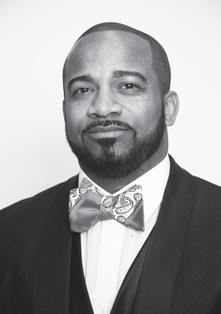
she would take me on trips to Dallas to go take care of her grandmother. In the meantime, she would always cook, and I would just spend hours just watching her cook, helping her cook. I learned a lot from her in the kitchen.”
What also helped was traveling across the country visiting cookie shops. Among the challenges of starting a cookie business is not doing what existing cookie companies are doing, but rather coming up with ingredients and flavors that set his cookies apart from the others.
“You’re not going to get a perfect cookie the first try.”
Being successful in business is not a snap, even for a pro athlete such as Woods Richardson, and even more as a cookie maker “where inventing cookies and remaking cookies, and messing up cookies sometimes because you’re not going to get a perfect [cookie] the first try,” surmised the Saints pitcher.
“So, it’s like finding which one works for us, and then go from there.”
Charles Hallman welcomes reader comments to challman@ spokesman-recorder.com.
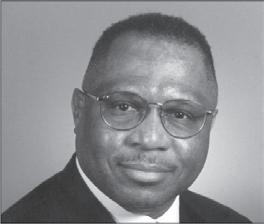
complete set of bid documents are available by contacting Northstar Imaging at 651-686-0477 or www.northstarplanroom.com , under public plan room, EMERGENCY GENERATOR REPLACEMENT AT HAMLINE HI-RISE, Contract No. 26-038. Digital downloads are
BILLING@SPOKESMAN-RECRDER.COM
LEGAL NOTICES
SIZE: 2 COL X 5”
RATE $18.10 PCI (1ST RUN)
SUBTOTAL: $181
Please proof, respond with email comfirmation to ads@spokesman-recorder.com
The MSR handles billing digitally. This means you will get e-tears and emailed invoices unless you specifically request a hard copy.
Continued from page 12
WBHOF inductees during the brief media Q&A last Friday about the social media presence that sometimes seems too divisive in today’s women’s basketball, especially in the WNBA.
“It’s so many new fans coming into the game, and they don’t necessarily understand the game the way we as players and original fans do.”
“It’s so many new fans coming into the game,” said Beard, “and they don’t necessarily understand the game the way we as players and original fans do. I think it’s going to take time for everyone to connect…and listen to my perspective to learn and not necessarily to criticize.”
It is always humbling to be inducted into a hall of fame, even the WBHOF that
opened in Knoxville in 1999. This year’s class joins 199 individuals already in the Hall, a 32,000-square foot building with the world’s largest basketball (10 tons and 30 feet tall) on top.
Fowles said after her speech, “It’s been a humbling experience. A full circle moment not because of the things that I have done but thinking back on how I started. Basketball wasn’t a primary sport, it wasn’t something I wanted to do full time. It opened so many doors and presented so many opportunities.
“And now I am standing… as a Hall of Famer. I am very thankful of the journey that the Creator decided to send me on and placed all these amazing people in my life.”
Fowles also will be going into Naismith HOF in September along with Bird and former teammate Maya Moore.
Finally, the HOFer believes that former Lynx teammate and current Assistant Coach Rebekkah Brunson eventually will join her, Maya Moore, Seimone Augustus and Whalen in the Hall. “She’ll be in soon,” predicts Fowles.
Charles Hallman welcomes reader comments to challman@ spokesman-recorder.com.
All individuals are encouraged to apply. No agencies or phone calls please.

SIMPLY FILL OUT THE
AND MAIL WITH PAYMENT TO: Minnesota Spokesman-Recorder 3744 4th Ave S, Minneapolis, MN 55409 Name:
1 yr:

RATES


Continued from page 12
2023 Newcomer of the Year while averaging 21.1 points per game. In 2024, he averaged 15.5 points per game. In addition to his outstanding statistical season in 2025, Kimmons was named an All-American as well as being named the Northern Sun Intercollegiate Player of the Year. Kimmons had one of the most successful seasons in the history of CPS athletics, not only a tribute to his athletic ability, but also his ability to make his teammates better. He helped to put his school on the map with an unforgettable season. It will definitely be one to remember.
Dr. Mitchell Palmer McDonald welcomes reader comments to mcdeezy05@gmail.com.
By Charles Hallman Sports Columnist
imeon Woods Richardson, in addition to being a pro athlete, also is a sports fan. Before a recent St. Paul Saints game, the 24-year-old pitcher and an elderly sports reporter swapped stories of games we attended in our respective lives.
Woods Richardson hasn’t been to a Minnesota Lynx game but has kept up with the local WNBA club’s fast start to their season. Staying unbeaten “is extremely hard to do,” he noted. “That’s why I think I love sports.”
We talked hockey, a sport I first started watching as a grade schooler in Detroit and have covered for decades. “I went to my first [Minnesota] Wild playoff game a couple months ago,” Woods Richardson continued.
We both have been to at
least one Super Bowl, but the Black pitcher had me on attending baseball’s fall classic: “I went to the World Series,” said Woods Richardson.
“I went as a fan, but I actually didn’t like the experience. I’d rather be in it, you know – it’s the competitor in me.”
Like hockey, I first started watching baseball around the same time — I began covering the Twins in 2000 and the Saints shortly thereafter. Also, I’ve done my share of Gopher baseball and softball games over the years.
“I’m a fan of the game,” confirmed Woods Richardson.
“I’m a student of the game. I love playing the game. I’m a Houston Astros guy. That’s the only team you could go watch when I was in high school [in Texas].”
Now, for at least a year, Woods Richardson has added emerging Black businessman ■ See SWR on page 11


ollege sports are becoming more like the pros now that schools finally can pay college players.
Judge Claudia Wilken two weeks ago approved the deal between the NCAA and lawyers representing Division I athletes. The House v. NCAA settlement ends three separate federal antitrust suits against college sports’ governing body.
The settlement gives schools the power to create new rules in limiting the influence of boosters and (NIL) collectives. Any endorsement deal between a booster and an athlete will be vetted to ensure it is valid and not a recruiting incentive.
More importantly, the $2.8B settlement is back damages to be paid to student athletes over the next 10 years who competed in college at any time from 2016 through present day.
Beginning July 1 schools can start playing athletes like the pros using an annual cap of an estimated $20.5 million per school beginning with the 2005-06 school and athletic year, with an increase every year. This is in addition to scholarships and other permitted benefits for athletes.
It is speculated that the University of Minnesota will share its annual $20.5 million in revenue among five sports — football, men’s basketball, women’s basketball, men’s hockey, and volleyball — with football getting most of the money, not unlike other bigtime schools. What this does for women’s hockey, one of
NOXVILLE, TN. – The local PWM (primarily White media) seem to have no qualms about sending a press contingent whenever a local male athlete goes into a particular hall of fame, but not a single one whenever a female athlete is inducted.
Last weekend here in Knoxville is another such example.
WNBA legend Sylvia Fowles, who won two league championships, two Finals, and one league MVP wearing a Minnesota Lynx uniform, was among the seven-member Women’s Basketball Hall of Fame (WBHOF) Class of 2025, but the only Minnesota media there was the MSR.
Lindsay Whalen was inducted in the Naismith HOF in 2022, and we were the only local media there. By comparison, San Antonio’s four media outlets were there for Manu Ginobili, who was in the same class as the Minnesota-born Whalen.
Last summer when three former Lynx stars — Taj McWilliams-Franklin, Maya Moore and Seimone Augustus — went into the WBHOF, no other local media were there but me.
Last weekend was the third time, a charm, regarding absent Minnesota media at a hall of fame induction involving females. Nonetheless this longtime women’s sports reporter made the trek to Knoxville.
Among the 16 featured displays I saw on my self-guided tour is the 1981-82 Cheyney

State women’s team, the only HBCU to play for a national championship. The all-Black squad was inducted last year as “Trailblazers of the Game.”
There also is a display honoring Black colleges’ and universities’ “rich history in the development, change, and
growth of women’s basketball,” says the sign above it.
“Sweet Syl” was very happy and hugged us prior to speaking at the packed-room media session. “Sylvia Fowles’ unparalleled achievements showcase her extraordinary talent, work ethic, and impact
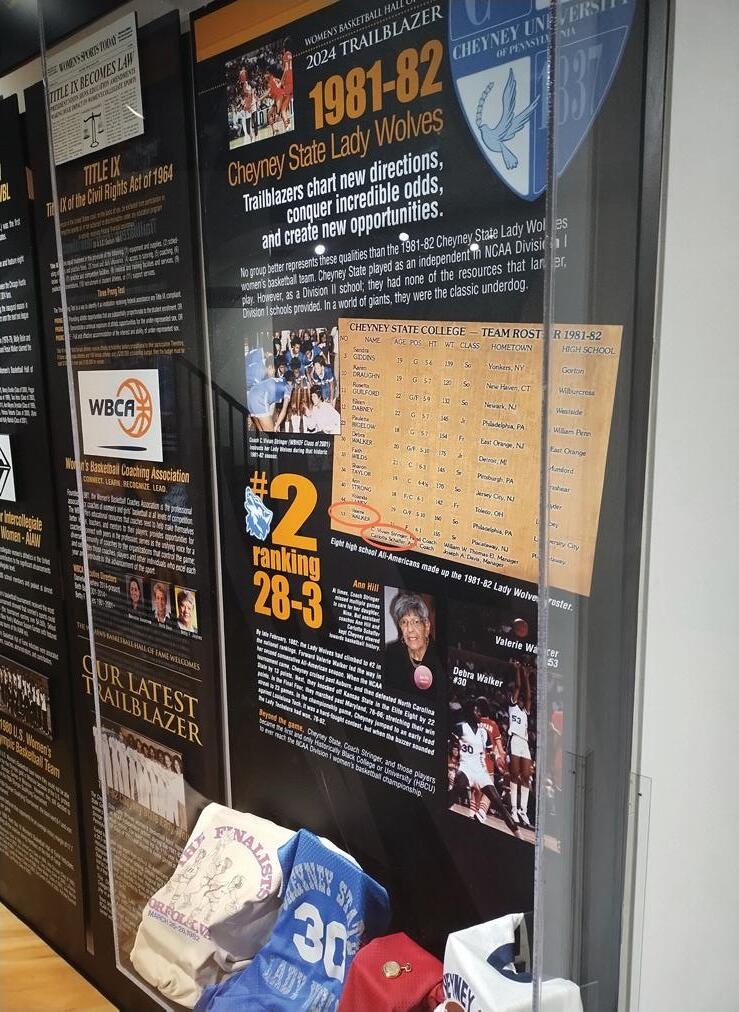
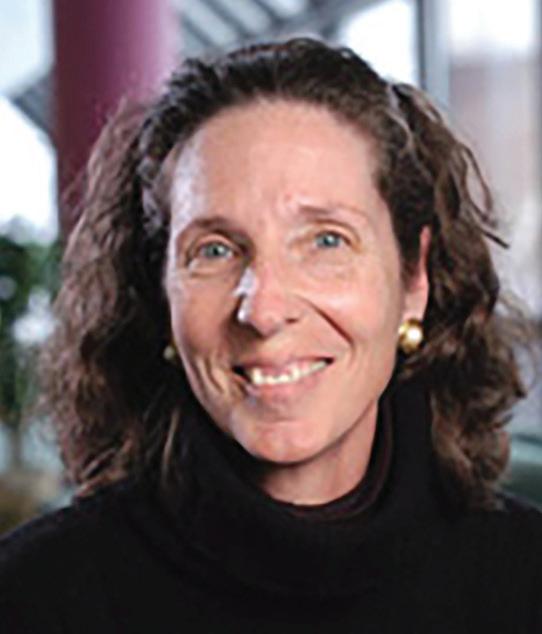
the school’s most successful teams, and other non-revenue sports has yet to be determined.
What about HBCUs, which historically have smaller budgets than larger schools, or for that matter, smaller Division I PWIs (primarily White institutions)?
SWAC Commissioner Charles McClelland told HBCU Sports that the House settlement “will impact the finances of every SWAC institution.”
While there are reasons to celebrate decades of fighting for fair compensation for student athletes while coaches and others make millions off them, the House settlement also created more questions as a result.
“I don’t know how all of this is going to play out,” said Ithaca College Sport Sciences Associate Professor Ellen Staurowsky to the MSR. She is a longtime advocate for college players to get paid, especially Black student-athletes. “It’s difficult for me to say that’s a good deal, and that’s just one of the issues,” she added on the House settlement.
“I’ve spoken to a couple of other people about this who are lawyers,” continued Staurowsky. “The question becomes how much of an improvement it is really to the finalization of the settlement.”
Furthermore, the House settlement and Wilken’s decision does not address the longstanding inequity between men’s

sports and women’s sports, the professor pointed out.
“I think in many ways that has confused the issues,” she believes. “I agree with the judge that the Title IX concerns are not antitrust concerns. What I think should happen and what I think could have happened long before now is that the Title IX case that should have been brought never was [filed].”
“I
“What I think should happen is that I think the NCAA should be sued,” said Staurowsky. “I think the conferences should be sued. I think the schools should be sued for the damages that they’ve done to women’s sport, which has been massive. I just think it’s a separate case.”
The times are crazy now with the anti-anything-notWhite fervor being whipped up politically, especially against colleges and universities, surmised Staurowsky. “What concerns me just more than anything else is for our students and for my colleagues, this is a very threatening time to be living in America.”
“I am so worried and concerned, and I take none of it for granted in terms of my position in relationship to yours [as a white person to someone Black]. It’s not the same.”
Charles Hallman welcomes reader comments to challman@ spokesman-recorder.com.
on basketball worldwide,” said the WBHOF Class of 2025 Inductees bio sheet.
She, Alana Beard and Cappie Pondexter were the only Black females in this year’s HOF class. The three legends combined during their pro careers earned 18 All-Star berths, three league best defensive player honors, three Finals MVP awards, and five WNBA championships.
Completing the class is Women’s Basketball Coaches Association Executive Director Danielle Donehew; Union (TN) University and NAIA championship Coach Mark Campbell; Lucille Kyvallos, who coached at West Chester (Pa.) State College and Queens (N.Y.) College to early era greatness; and WNBA legend Sue Bird, one of the WNBA’s Top 15 Players of AllTime and All-Decade Team.
The MSR asked the 2025
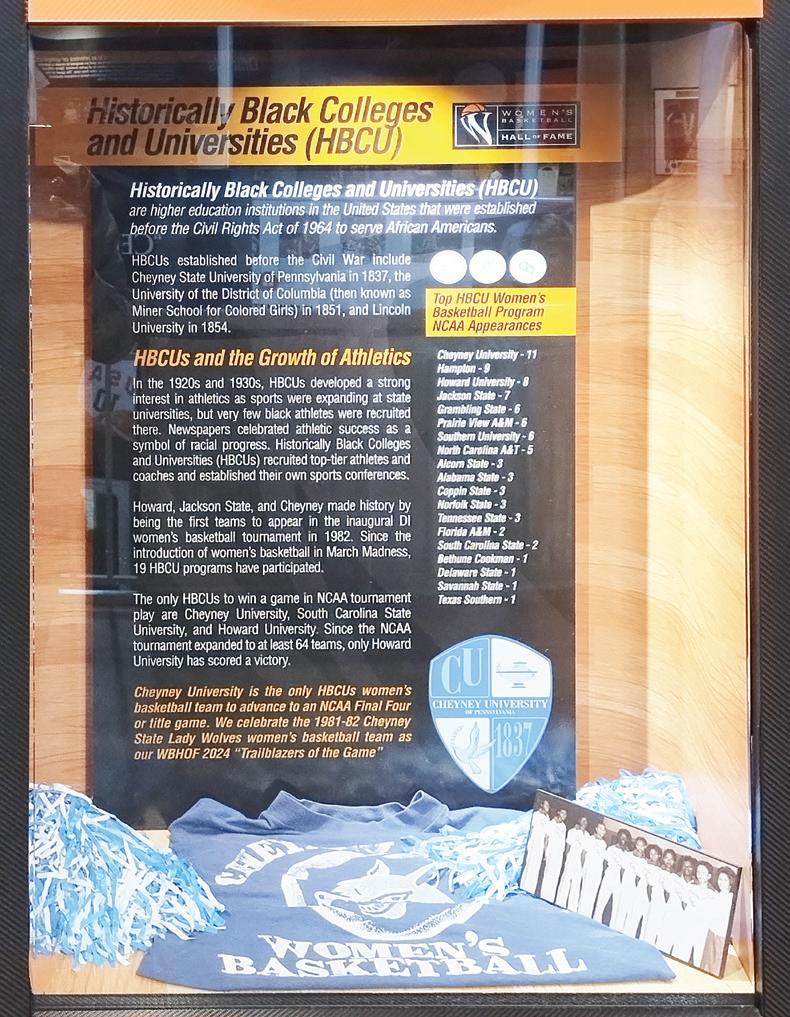
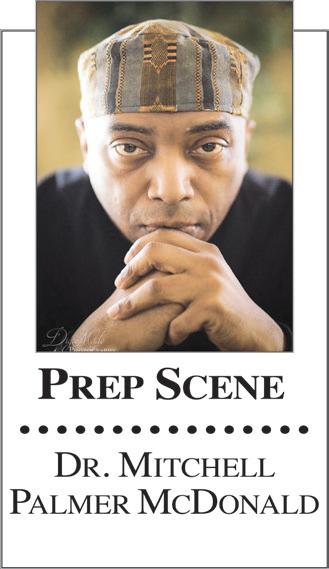
ne of the best-kept secrets in the world of Minnesota athletics was the remarkable basketball season that senior Antwan Kimmons had as a member of the men’s team at the University of Concordia St. Paul this past winter. The 2024-25 men’s basketball season has been one to remember.
ferring to CSP.
As a 6”1’ senior guard, Kimmons averaged 25.2 points, 5.7 assists, and 6.4 rebounds while leading the Golden Bears to their first-ever NSIC championship and NCAA tournament win, capturing multiple Player of the Week honors throughout the season.
Kimmons, named the 2025 CSP Athlete of the Year, has achieved a historic milestone as the first male basketball player to receive the honor since 2006.
While at Tartan, he lettered all four years in basketball and twice in football.
After earning all-conference honors as a junior and senior while averaging 20 points, six rebounds, and five
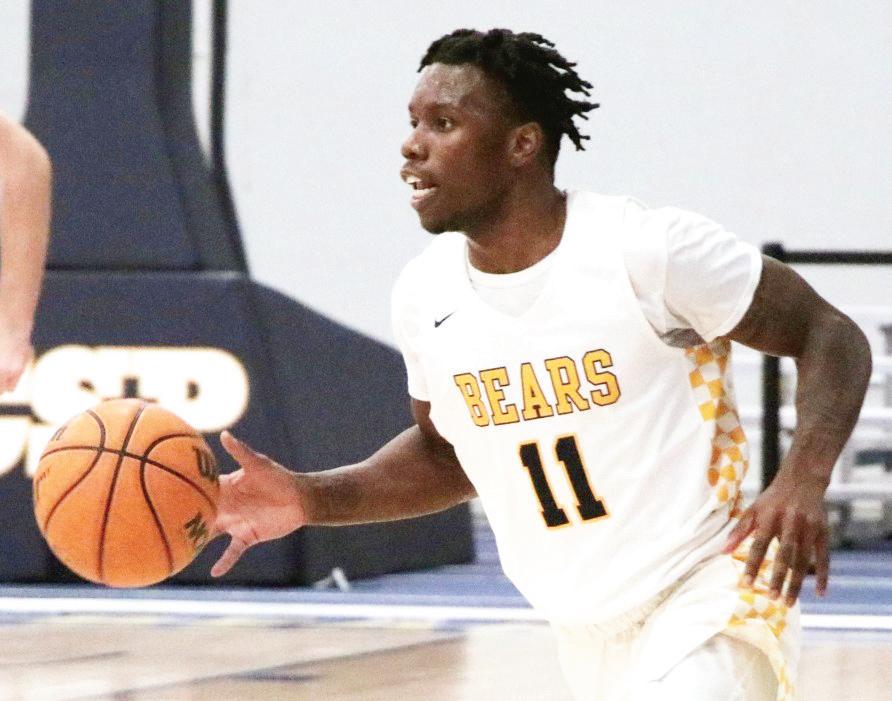
When Kimmons transferred to CSP he was the